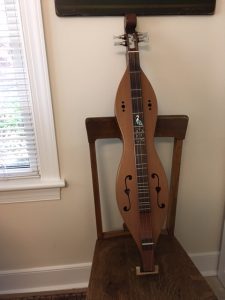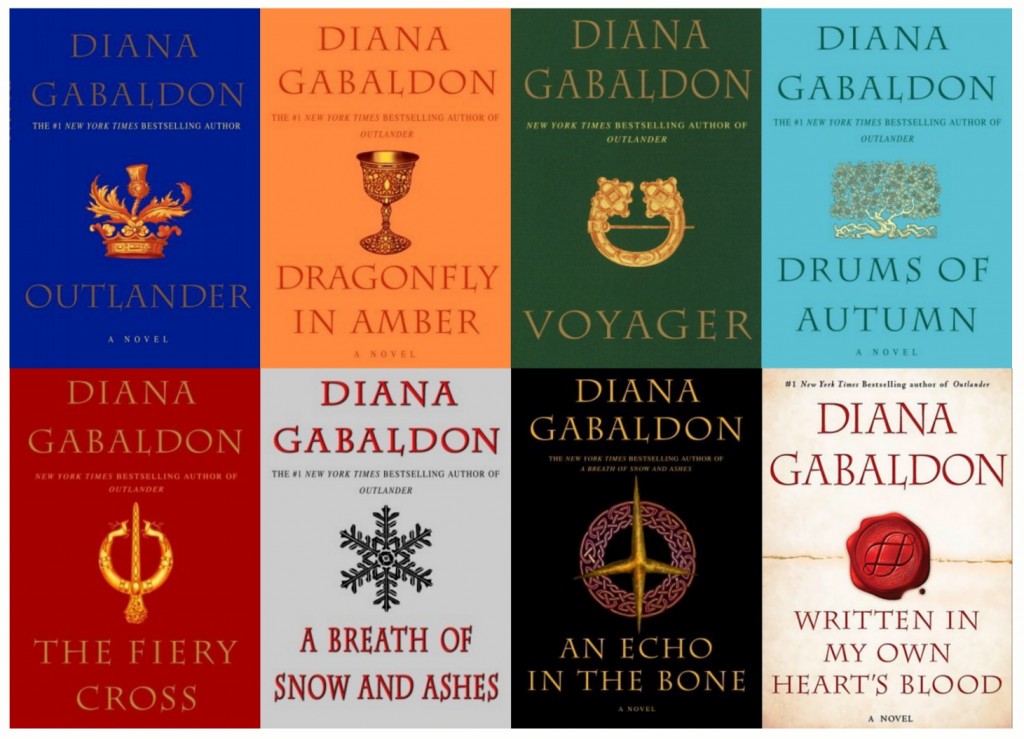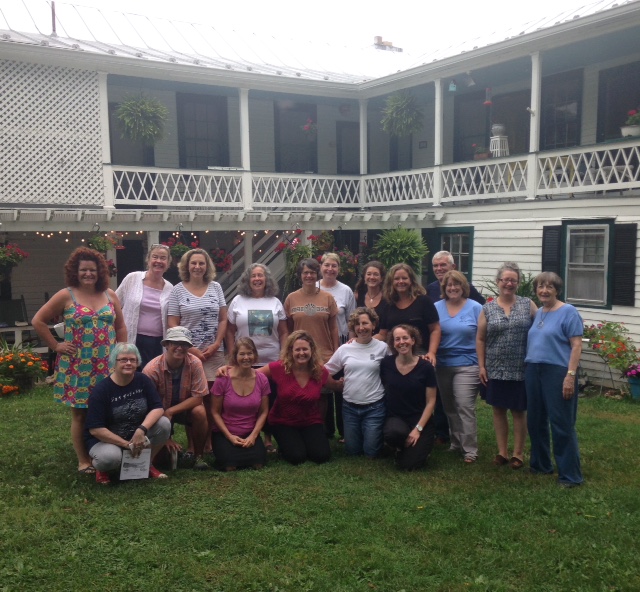So, I’m here at Nimrod for the week, and it is gorgeous as ever in spite of the daily showers and thunderstorms. I arrived with great optimism and enthusiasm for the days ahead. And then it all went to hell in a handcart.
First my printer wouldn’t print. It signaled low ink so I replaced the cartridge, and still it won’t print. Yesterday was my day to be “on”–i.e., have the conference with Cathy Hankla (writer in residence), followed by group critique, followed by reading to the group after dinner (not the work that had been critiqued). I was disgruntled about the printer, but I’d brought copies of all my work for critique and I figured I could do my evening reading from the screen.
I spent yesterday morning reworking my 1,000-word piece. My computer started frustrating me. I’d have the document up and all of a sudden– and frequently– the screen image would go from 125% to 100%, 73%, 50%, 27%… but I persevered and was pleased with the results. I saved it before going to lunch. And after lunch, the document wouldn’t open. I got a message that the required index.xml was missing– whatever the h*ll that means! So I tried to get online help, ended up spending more than an hour and $44 with no apparent effect, so I cut that off and pondered what in the world I’d do about my reading.
I ended up reading a timed writing. I had done that for my fiction class earlier this summer. It wasn’t great, but it was well-received.
So last night, I was reviewing the day and decided that whatever else, my conference and workshop had been great! I’d submitted “The Doll’ and the first draft of a short story murder mystery set during the Civil War at Chimborazo Hospital. Cathy concluded that both pieces shared the same strengths and weaknesses. And BTW, both dealt with amputations and body integrity– which was not a thought that had crossed my mind! The group’s appreciations, trouble spots, and suggestions are going to be extremely helpful with re-writes.
Participants send work to Cathy ahead of time and one of the things she does is bring in books with marked passages she thinks will be helpful to each participant. She recommended a section of Steering the Craft for me. Coincidentally, I’d brought that book with me, having bought it on the recommendation of Amy Ritchie Johnson, my VMFA Studio School teacher. So if you are a writer, get thee a copy. And more importantly, read it. (Do as I say, not as I did.)
Last night I concluded that boiling frustration and irritation are not good. (Duh! You heard it here first.) As soon as I return home I’ll take my computer to the Apple Store Genius Bar. In the meantime, I’ll just go back to yellow pad and pencil and make the best of it. (Those of you who’ve read my blog on old writing technology will know how difficult this will be for me. But I shall persevere!) I’ll take copious notes on work to be revised after my word processing function has been restored. I’ll read Le Guin and Natalie Goldberg (Writing Down the Bones) to improve my writing and other books for pleasure.
Technology will not ruin Nimrod for me! I’ll still enjoy soaking up Nimrod’s atmosphere as well as the enthusiasm and wisdom of all the writers.
Sometimes life gets on top of you. You aren’t dead, just buried. And accidents happen. Such was the case for me once upon a time. When two on-line journals went live nearly simultaneously, I realized that I had granted first rights to both of them. My attempt to set things right follows.
To the OxMag Editorial Staff:
I am embarrassed and extremely regretful to have to tell you that I inadvertently granted publication rights to two literary journals. On May 8, 2015, when I granted OxMag rights to my short story “Trust,” I did not recall that I had previously (on March 27) granted publication to Diverse Arts Project Journal. All I can say in my defense is that over the last several months I’ve been distracted by two surgeries, daily hospital care for a persistent non-healing wound, various other health complications, family issues, and a flurry of short story acceptances. Once I discovered my error, notifying you seemed the only honorable thing to do.
As an on-line publication, I suppose that you can—and may wish to—remove my story from this issue. Alternatively, should you choose to allow the double publication to stand, please add an appropriate footnote acknowledging the Diverse Arts Project Journal.
Again, my apologies for the error. Please let me know how you decide to handle this. And thank you for your time and efforts on my behalf.
A little more than three weeks later, I received the following response:
Thank you so much for coming forward with this issue, we appreciate it.
Because it is our policy generally to only publish previously unpublished work, we will remove your story “Trust” from our Spring 2015 issue. We did enjoy your story, and re-reading it gives us time to again appreciate why we chose to publish it initially. We encourage you to continue submitting work to OxMag, but also remind you to in the future keep us informed of the status of any simultaneous submissions. (Submittable actually has an option to withddraw stories from consideration once they’ve been accepted without you having to notify everyone.)
We wish you good health, and also congratulations on the other short story acceptances—that’s very exciting!
There are several take-aways for writers. One, with e-publishing, this sort of error can be corrected. Unlike a print journal, where making changes of this sort would be prohibitively expensive, it’s a relatively easy fix. Two, if you screw-up—regardless of the medium—admit it. Besides easing your conscience, doing so reflects well on you. In this case, OxMag thanked me and invited future submissions. And, three, take care of the paperwork (either yourself, or through a third party). It’s much better to avoid this sort of situation than to try to repair it!
You can read “Trust” at The Diverse Arts Project.

In high school I played percussion, but I never mastered a tuneful instrument–which I’ve always regretted. So, I recently started taking dulcimer lessons. The instrument and the music are rooted in Appalachia, as am I. In short, it’s important to me.
But so far, I’ve managed only one lesson and one practice per week– usually the morning of the lesson. This is not the road to proficiency!

I truly intend to practice, but there’s always something else to do first. Make the bed. Empty the dishwasher. Celebrate my birthday with my bridge buds.

Write my twice-weekly blogs. Submit a short story. Come up with and deliver a couple of tattoo stories to honor Amy Black. Spend Easter with my family in New England. And on and on.
AND THAT BRINGS ME TO FIRST THINGS VS. IMPORTANT THINGS.
It’s easy to fill your life with things that are right in front of you–or that have a date certain–and never get around to some things that are truly more important.

When my children were little I often lamented the clutter and mess in my house. (I was a psychology professor at the time.) One day a friend with four children just older than mine said, “If they aren’t doing structural damage, don’t worry about it.”
Which brings us to the point: LOOK AT HOW YOU SPEND YOUR TIME AND DECIDE WHICH FIRST THINGS CAN BE MOVED TO LAST. If writing is truly important to you, make time for it.
And so, off to practice dulcimer!
Interested in learning more about writing? Join me at Agile Writers for my class on Write Your Life: Memoir and Memoir-Based Fiction. For more information, visit the Agile Writers website.
ONE: I will write something every day.
TWO: I will set a realistic daily goal. It can be minutes, hours, word count, or pages, so long as it is quantifiable. (One needs to be clear on whether the goal was met.) And keep it realistic. (Why set up for failure?)
THREE: I will create a writing diary/calendar and record my writing achievement every day. I’ll star every day I meet or exceeded my goal.
FOUR: I will reward myself. I will treat myself whenever I accumulate X-number of stars.
FIVE: I will read at least one book about the craft of writing.
SIX: I will read at least one book on self-editing.
SEVEN: I will attend at least one writing conference, book festival, or class.
EIGHT: I will read at least one book in my genre with a conscientiousness of how I would have done it differently.
NINE: I will be supportive of writers. This includes not beating up on them or myself!


What if an uninvited guest drops by?
#2
#3
#4
#5
#6
